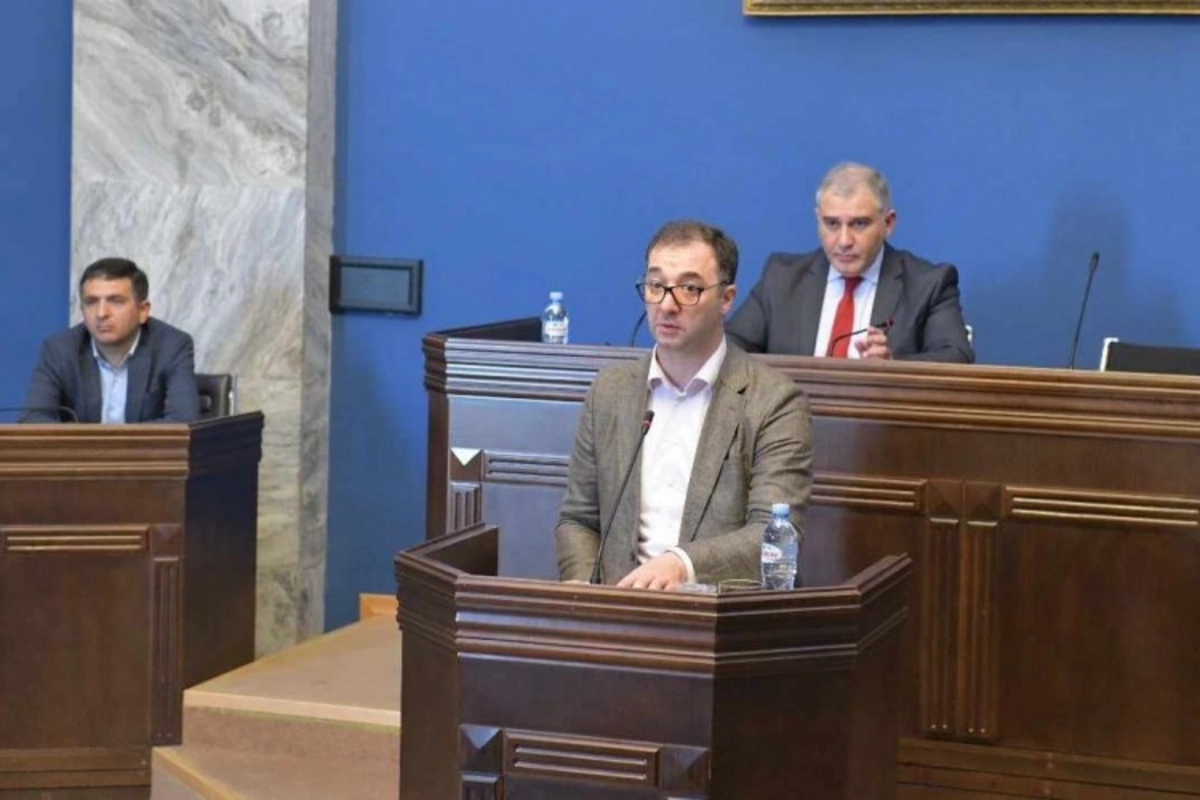
The amendments, which further empower the communications regulator, have drawn criticism from the Council of Europe.
Image: parliament.ge
(Eurasianet) The Georgian government's decision to centrally regulate hate speech, obscenity and fighting words in broadcast media has touched off fears of potential government censorship.
A newly passed amendments to the law on broadcasting gives the state the power to act on occurrences of hate speech, obscene language and incitement of violence in the news media. Previously subject to self-regulation by media companies, these matters now largely fall into the purview of the Georgian National Communications Commission (GNCC).
Media companies can still take their own actions regarding violations of ethical standards, but these actions are now subject to appeal in the GNCC. If the in-house reactions are found unsatisfactory, the Commission can take disciplinary measures against the company, ranging from a warning to a fine to revocation of its broadcasting license.
When it comes to obscene content, the GNCC can now take immediate disciplinary action without waiting for media companies to deal with such cases through internal regulatory mechanisms.
While the amendment was advertised as a measure for maintaining peace and professional standards in the media, there is a strong mistrust among media companies and freedom of expression watchdogs toward the government's intentions.
"Legal regulation of hate speech is fraught with risks in the light of government's intolerance toward free speech, the lack of strongly independent regulatory agency and poor level of trust in the court system," said the Georgian chapter of Transparency International, a global anti-corruption watchdog.
The governing party, Georgian Dream, argued that the change was needed to bring the national law in line with the European Union laws and regulations, and was part of the nation's broader effort to harmonize its legal system with the bloc to pave the way for potential membership in the future. But the Council of Europe found the amended law to be at odds with European norms.
"There are a number of provisions that do not align with EU and Council of Europe standards," the Council of Europe said in its assessment, adding that overall the law does not comply with the EU-wide broadcasting regulation, the Audiovisual and Media Services Directive. Some clauses, the Council said, run counter to the European Convention on Human Rights, a list of rights and freedoms mandatory for the members of the Council of Europe (which include Georgia).
A number of steps need to be taken to align the law with European standards, said the Council of Europe. This includes guaranteeing the independence of the regulatory body, clarifying the definitions of hate speech, and modifying the grounds for suspension of broadcasting licenses.
The change comes amid an all but open war between the ruling Georgian Dream party and the bulk of the broadcast media and civil society. The governing party is boycotting critical TV companies and is accusing key democracy watchdogs of fomenting unrest.
Georgia's media environment ranks as average in one key global freedom and democracy score chart (3.25 out 7). Freedom House said that the media scene remains "diverse and vibrant," but at the same time deeply polarized and attacks on the freedom of the media remain a problem.
Share on social media